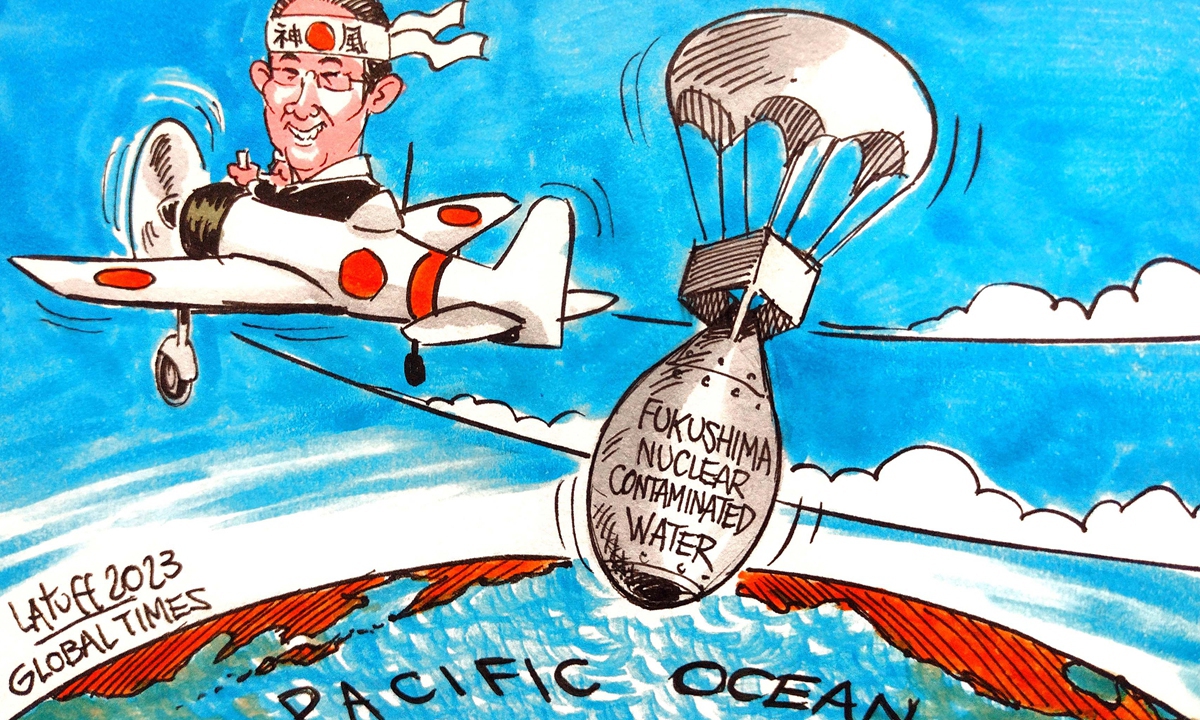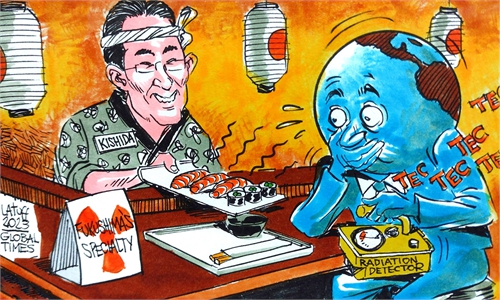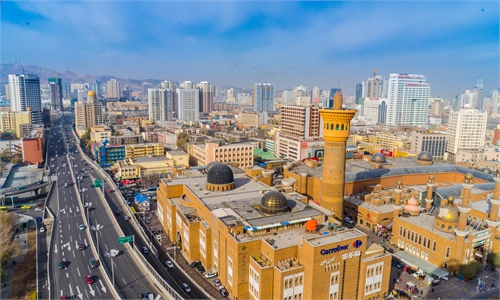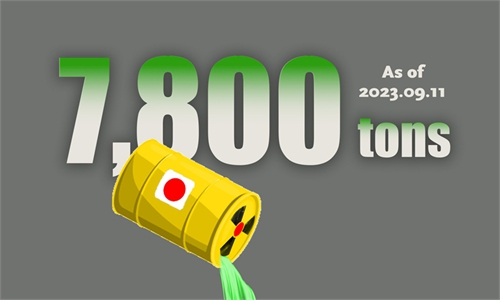Japan's exploiting IAEA's assessment report seriously undermines agency's reputation: Chinese envoy

Japan drops the "bomb" of nuclear-contaminated water into the Pacific. Cartoon:Carlos Latuff
Slamming Japan's sophistry over its nuclear-contaminated wastewater dumping, the Chinese permanent representative to the International Atomic Energy Agency (IAEA) Li Song said on Monday that it is Japan who is politicizing the issue with its impassiveness to the furies of their own people and neighboring countries while making every effort to whitewash themselves. Exploiting the IAEA's assessment report is a serious damage to the reputation of the agency, Li added.
Li, who is also the permanent representative of China to the UN and other International Organizations in Vienna, spoke at the IAEA Board of Governors in Vienna that history will remember August 24, when the Japanese government, disregarding strong international questioning and opposition, unilaterally initiated the discharge of nuclear-contaminated wastewater from Fukushima.
It is a significant nuclear safety issue with cross-border and long-lasting implications, and is by no means Japan's private matter alone. "If the Fukushima wastewater is safe, why must it be released into the ocean? If it is not safe, it should never be discharged into the sea," Li noted.
The Japanese side did not seek a comprehensive and inclusive assessment by the IAEA of options other than ocean discharge; instead, they unilaterally imposed the decision to discharge on the world.
The IAEA's assessment of the wastewater, conducted at Japan's request, falls under the nature of technical assistance and advisory evaluation, and does not possess the force of international law, Li said, adding that the conclusions of the assessment report did not get consensus within the technical working group.
However, Japan has heavily exploited the agency's assessment report to forcefully initiate the discharge plan, seriously undermining the IAEA's credibility and posing a significant detriment to the safety and development interests of global nuclear energy industry.
Li stressed that it is highly essential for the IAEA to establish a long-term, effective and independent international monitoring mechanism, free from Japanese control. This mechanism should be led by member states of the agency, and fully consider the interests and concerns of relevant stakeholders.
Refuting the sophistry of Japanese representative who argued that the statements made by China are "politicized and emotional," Li said that any responsible government would not ignore the resounding calls from its people against Japan's ocean discharge actions. The true politicization would be Japan turning a deaf ear to these concerns while attempting to whitewash its actions.
The nuclear-contaminated wastewater contains over 60 radioactive isotopes, many of which still lack effective treatment methods; and regarding the 1.34 million tons stored in 1,300 tanks, as well as the 100 tons of new wastewater generated daily, Japan has not provided clear explanations regarding the contents of each storage tank, Li said.
No matter how Japan attempts to justify its actions, it cannot alter the fact that a significant amount of harmful substances have been discharged into the Pacific Ocean, potentially causing unpredictable risks to marine ecosystems and human health, Li noted.
When commenting on the recent IAEA assessment report that it "found tritium level below limit" after the agency conducted its first seawater sampling following Japan's discharge, Chinese Foreign Ministry spokesperson Mao Ning said that the so-called monitoring of Japan lacks authorization from the Board of Governors and has not been fully discussed by member states.
It was merely a technical consultation which lacks international and independent oversight, Mao noted.
The international community is calling for the establishment of a comprehensive and substantive international monitoring arrangement, with the full participation of neighboring countries and relevant stakeholders, to ensure long-term effectiveness, the spokesperson said. This arrangement should include detailed plans regarding the types of nuclear substances to be monitored, monitoring frequency, locations, scope and reporting.
However, any kind of monitoring does not imply recognition of Japan's dumping, nor does it grant legitimacy to Japan's actions. Japan should immediately cease transferring the risk of nuclear pollution to the rest of the world, Mao said.
Global Times



